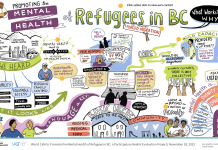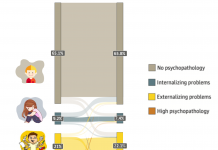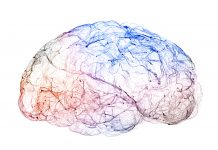Open Access Government produces compelling and informative news, publications, eBooks, and academic research articles for the public and private sector looking at health, diseases & conditions, workplace, research & innovation, digital transformation, government policy, environment, agriculture, energy, transport and more.
Home 2024
Archives
©Trans-faire: A training protocol for strengthening unions and others’ care of workplace mental health...
Mélanie Dufour-Poirier, Ph. D., CRIA, Associate Professor, School of Industrial Relations, Université de Montréal, walks us through ©Trans-faire, a training protocol for strengthening unions and others’ care of workplace mental health injuries.
Gambling research in Canada
Professor Fiona Nicoll from the University of Alberta and Professor Kate Bedford from the University of Birmingham delve into gambling research in Canada, emphasizing...
Empowering trans and nonbinary students against sexual assault
Sarah Peitzmeier, Micah Hopkins and Charlene Y. Senn describe how an effective sexual assault resistance program for women is being adapted for trans and nonbinary students.
Supporting the mental health needs of children with language and literacy difficulties
Professor Mark Boyes, Curtin enAble Institute, spotlights mental health in the context of language and literacy difficulties, including the urgent need for accessible mental health interventions.
Co-construction: A key to preventing mental health injuries in occupational settings
Dr Mélanie Dufour-Poirier from the Université de Montréal and Dr Jean-Paul Dautel from the Université du Québec en Outaouais outline a new approach to preventing workplace mental health injuries and improving wellbeing.
Can the arts be an effective tool to combat psychosis stigma?
There has been a rise in stigma for mental illnesses over the past few decades, particularly for psychotic symptoms. However, artistic representation may be the key to eliminating psychosis stigma.
Upscaling integrated mental health services and systems for people of forced migration
How can realist impact evaluation be used to upscale the integration of mental health programs for people of forced migration? Nancy Clark, an Associate Professor from the University of Victoria, investigates.
Navigating health autonomy through self-care
Interest in self-care has exploded in recent years, highlighting its crucial role in shaping future healthcare systems. Imperial SCARU’s Dr Austen El-Osta discusses emerging trends, research priorities and self-care policy landscapes, advocating for a global movement towrds accessible and empowered health management.
Internet-delivered cognitive behavioural therapy
Heather D. Hadjistavropoulos, Hugh C. McCall, and Jill A. B. Price, walk us through internet-delivered cognitive behavioral therapy tailored to public safety personnel.
Understanding and supporting neurological conditions among the incarcerated
Samuel Han and Audrey Nath discuss neurological conditions among the incarcerated, who they argue are a medically underserved population.
A music and mental health research clinic
The University of Ottawa Institute of Mental Health Research at The Royal details the context and challenge of a music and mental health research clinic.
A crisis in workplace mental health injuries… And in work itself
Dr Mélanie Dufour-Poirier, Associate Professor at the University of Montreal’s School of Industrial Relations, discusses opportunities to safeguard employees’ mental health injuries and wellbeing through union involvement.
Canadian workers at risk: Removing barriers to treatment for public safety professionals (PSP)
Gregory S Anderson, from Thompson Rivers University and Helen Dragatsi, from Government of Canada speak to us about removing barriers to treatment for Canadian workers at risk.
Promoting fathers’ mental health and involvement
Promoting fathers’ mental health and father involvement – a call to action is given here by Deborah Da Costa, Ph.D., Associate Professor at the Department of Medicine, McGill University, and Scientist at McGill University Health Centre.
Building resilience: Key to protecting adolescent mental health
Essi Viding, Pasco Fearon, Tom Wu, Alexander Lloyd, Laura Lucas, Roslyn Law, and Jaime Smith discuss new approaches to preventing adolescent mental health problems from emerging.
The long shadow of childhood mental health problems
Dr Niamh Dooley and Professor Mary Cannon explore what young adult life looks like for individuals who had mental health problems as children.
Treatments for ADHD: Can neurotherapies help treat children and adults?
Professor Katya Rubia from the Institute of Psychiatry, Psychology, and Neurosciences at King’s College London discusses the potential of non-invasive brain therapies, including neurofeedback, as treatments for ADHD.
Fathers matter: Supporting new dads during the transition to parenthood
Deborah Da Costa, PhD, Associate Professor at the Department of Medicine, McGill University, Scientist at McGill University Health Centre, details promoting and supporting new dads during the transition to parenthood.
Workers at risk: Families serving alongside
Heidi Cramm, Marilyn Cox, and Deborah Norris focus on the families of public safety personnel and health care workers (PSP and HCW), plus how the risks and requirements of the job impact them.
Stress and coping during COVID-19
Marian Adriaansen and Henk Poppen from HAN University of Applied Sciences discuss their research on how Bachelor’s students in nursing coped with the impact of the COVID-19 pandemic.





















